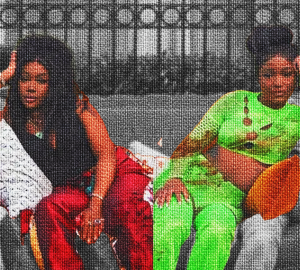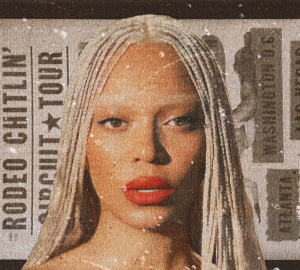
Graphic by Rachel Carp
Two Fridays in February have marked turning points in the music industry. On Feb. 5, “Framing Britney Spears” aired on Hulu and FX after the #FreeBritney movement gained popularity. One week later, Taylor Swift released her re-recorded song “Love Story” after the rights to her music transferred to a company called Shamrock Holdings. The legal disputes both women are in are a matter of ownership. Are artists entitled to own their work? Are women entitled the chance to control their careers?
Under Britney Spears’s conservatorship, her father Jamie Spears can legally negotiate business opportunities, manage her finances, and restrict visitors. Typically, conservatorships are used for people who demonstrate a severe inability to make decisions for themselves such as senior citizens and people with medical conditions. The media frenzy around Britney Spears reached a peak in 2008 when she shaved her head, confronted paparazzi and gave birth to her first child. Her public image generated concerned and a temporary conservatorship was put in place. By 2009, the conservatorship was permanent.
Since her conservatorship was instituted, she has made four albums and gone on three tours. None of the money she made since 2009 has been in her control. If she were to make a new album or perform again, none of the work nor its profits would truly be hers. She would not only need permission from her father but he and others would also likely monitor her throughout the process. Is it hard to believe Britney claimed she wouldn’t work unless an independent party took control of her conservatorship? How would it feel to build your career from childhood and have no ownership over your work?
It’s a similar situation to Taylor Swift who, from a very young age, worked toward a career in music. In 2004, Swift signed a contract with Big Machine which effectively traded her ownership of her work for a cash advance. The idea is, a record label invests some money in an artist and they use the money to make an album and some promotional material. Ideally, it’s a success and they earn their label a profit. The problem is, not owning the rights to their music means they can’t legally control what happens with it. It could be used in a commercial or movie with the label’s permission and not the artists.
Swift has made six successful albums with Big Machine and wanted to purchase her masters last year. Scooter Braun, a record executive, bought ownership of Big Machine, which meant he bought everything Big Machine owned, including the rights to Swift’s music. She couldn’t buy the rights to her work, so she went public and blocked any request for use of her music, causing Braun to lose money in his investment. These past few months, Swift has been using a loophole to regain control of her work. She can legally rerecord her songs and have complete control over the new versions, hence “Love Story (Taylor’s Version).”
What’s unique about Spears and Swift is not only that they are fighting for control but that the media has played a huge part in their careers. Spears’s life was documented by paparazzi before social media ever broadcasted the everyday moments of our lives. Swift’s songs were picked apart for hints into her relationships and photos of her with her boyfriends were shared for views and gossip. The scrutiny drove both women away from the public eye. They could have retired or left the industry, but the past year has shown they don’t plan to.
But this is not only a matter of artists fighting for ownership of their work, this is also two women refusing to be defined by what society says. From the beginning of her career, Spears was accused of being too sexual, talentless, hypocritical, unfaithful, a poor role model and an unfit mother. Swift was accused of using men to write songs about them and being too confident. In an industry such as entertainment, public image is crucial. If people dislike you, it jeopardizes your ticket and album sales. But in the everyday lives of many women, that pressure is just as strong. Artists like Paul McCartney, Kelly Clarkson and JoJo have all fought their labels over creative control and ownership of their work, but most of these artists haven’t had the same media treatment as Spears and Swift.
It can’t be a coincidence that these legal battles are coming to light in the wake of the MeToo movement which argued for victims, primarily women, of sexual harassment and assault to come forward and be heard. Being sexually assualted and losing control of your work and finances are not at all the same thing, but this raises the question of women’s autonomy. Do women have a right to boundaries? Do women have a right to tell their side of the story? Are we obligated to listen? Are women entitled to own the work they produce? Are women capable of managing their own success? There is no question women are profitable, but what about when women gain that profit?
There are endless sides to these stories. Spears’s conservatorship raises questions around the ethics of legal guardianships, how people with disabilities are disproportionately affected by them, and how exploitative they run the risk of being. Swift’s re-recordings reignite the debate around label/artist relations, creative control and the role the Internet is having on new music. But both stories overlap and expose the underlying doubt of women’s abilities and entitlement to their own work.


























